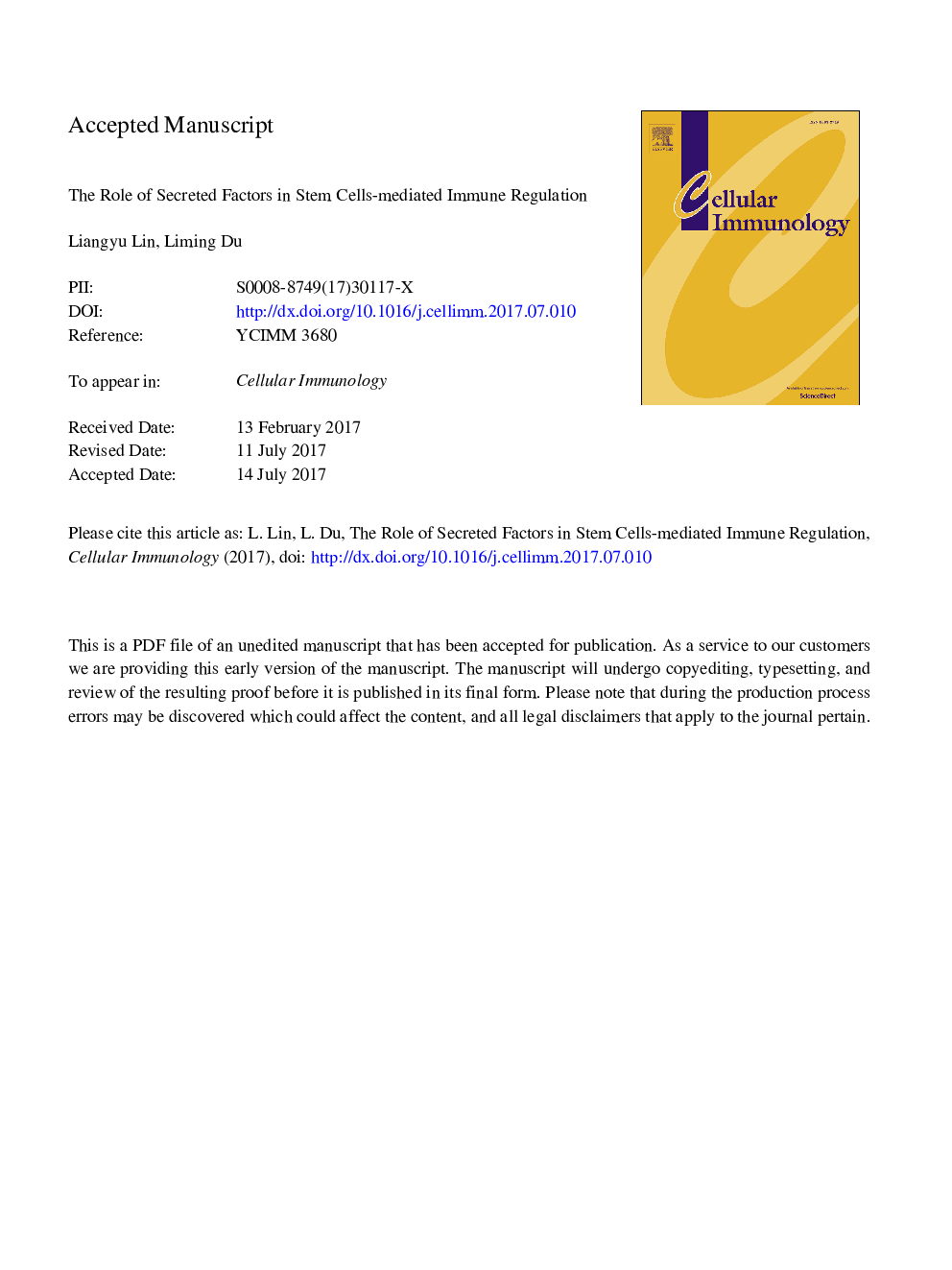| Article ID | Journal | Published Year | Pages | File Type |
|---|---|---|---|---|
| 8463571 | Cellular Immunology | 2018 | 39 Pages |
Abstract
Stem cells are characterized by self-renew and multipotent differentiation abilities. Besides their roles in cell compensation, stem cells are also rich sources of growth factors, cytokines, chemokines, micro-RNAs and exosomes and serve as drug stores to maintain tissue homeostasis. Recent studies have revealed that the secretome of stem cells is regulated by the local inflammatory cues and highlighted the roles of these secretory factors in stem cell based therapies. Importantly, stem cell conditioned medium, in the absence of stem cell engraftment, have shown efficiency in treating diseases involves immune disorders. In this review, we summarize the recent advances in understanding the regulatory effects of stem cells secreted factors on different immune cells including macrophages, dendritic cells, neutrophils, NK cells, T cells, and B cells. We also discuss how stem cells released factors participate in the initiation, maintenance and resolution of inflammation. The in depth understanding of interaction between stem cells secreted factors and immune system would lead to new strategies to restore tissue homeostasis and improve the efficiency of stem cell therapies.
Keywords
EAEPKC-ΘProtein kinase C-θLIFPGE-2SOD3KGFCFSEphorbol 12-myristate 13-acetateHeme oxygenase-1IDOTGFIL-1RAiNOSEGFMIPHO-1MSCsiPSPMAInterleukin 1 receptor antagonistexperimental autoimmune encephalomyelitisindoleamine 2,3-dioxygenasetransforming growth factorESCStem cell therapyImmune cellsStem cellsMesenchymal stem cellsInduced pluripotent stem cellsEmbryonic stem cellssuperoxide dismutase 3epidermal growth factorKeratinocyte growth factorleukemia inhibitory factorSystemic lupus erythematosusSLEMHCsecretomeImmune regulationNitric oxidemacrophage inflammatory proteinProstaglandin E2
Related Topics
Life Sciences
Biochemistry, Genetics and Molecular Biology
Cell Biology
Authors
Liangyu Lin, Liming Du,
